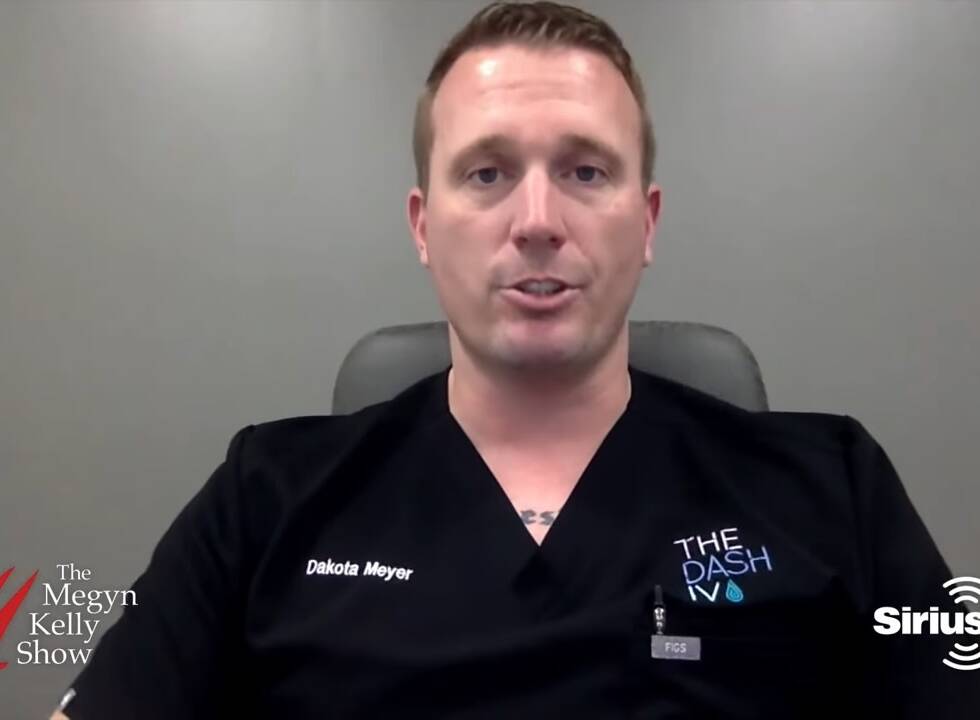It’s hard not to listen to the stories of the heroic men and women who serve in the United States military and not believe they are cut from a different cloth. Retired Marine Dakota Meyer is one such example of that. Meyer is a veteran of the War on Terror and was awarded the Medal of Honor in 2011 for his actions during the Battle of Ganjgal in Kunar Province, Afghanistan, on September 8, 2009.
He and his team were ambushed by more than 50 Taliban fighters, and, over the course of the six-hour incursion, he defied military orders and repeatedly re-entered the ambushed area to rescue those who were trapped and wounded. Meyer is credited with saving the lives of 36 U.S. and Afghan troops that day.
In honor of Memorial Day, Meyer joined Megyn to discuss his life and service. He opened up about the Battle of Ganjgal and what led him to continue to run towards danger to save both American troops and our Afghan allies.
Why Meyer Saved American Afghan Soldiers
Meyer was meant to find four missing Marines. He ended up rescuing some three dozen troops. When Megyn asked if Meyer ever had any doubt about risking his life to save men that he was not obligated to rescue, there was no hesitation in his answer. “No, because there is no prioritization when it comes to good and evil,” he shared. “These guys were on my team.”
When Meyer reflects on that day, he doesn’t feel like he “just lost four guys.” He also remembers the six Afghan soldiers who lost their lives. “I mean, I knew those guys as good as I knew my Marines,” he shared. “And I cared about them, too.” Their flags were different, but their mission was the same. “They were good guys, they had families, we were just born in two different places,” Meyer noted. “The group of Afghans that I served with, I don’t know that I would pick Americans over them as far as what I thought about their character.”
Meyer admitted that his initial thoughts were focused on his fellow Marines, but things changed once he saw the reality of the situation. “I did what they would have done for me,”he shared. “I love those guys, and we’d gone through some hard times together.”
That sense of love and responsibility saved many lives. “A lot of the guys who you saved were wounded and would have died if you hadn’t gotten them out of there,” Megyn said. In the case of those who didn’t survive, Meyer’s actions ensured families got the closure they deserved. “Not to mention the respect you showed for the Afghan dead in taking their bodies back to a place of safety or they could be delivered to loved ones,” she added.
Heading Back in a Third Time
Meyer and his driver returned to the battle site three times in an effort to locate the missing Marines. “When I figured out where everybody else was… I came over the radio and finally said, ‘Be advised we have four U.S. missing,’” he recalled. “You only use those words when you need to, when it’s very critical.”
The gravity of those words signaled the need for a rapid response of resources. “We had fast movers on stations, which are airplanes; we ended up getting two Apache [helicopters]; we got four Kiowa [helicopters],” Meyer explained. The goal was to have the equipment and manpower needed to recover the bodies – “hopefully alive,” he added.
Meyer said the situation on the ground changed rapidly depending on what else was going on. “What would happen is, while the aircrafts were on station, the fighting would die down,” he shared. But the respite was short-lived because, when they left to refuel, it would resume. The first time a helicopter came to their aid stating, “they were there for less than five minutes because they were completely out of ammunition.”
In many ways, it was a worst-case scenario. But, as Meyer concluded, “that’s where the situation was.”
You can check out Megyn’s entire interview with Meyer by tuning in to episode 331 on YouTube, Apple Podcasts, or wherever you like to listen. And don’t forget that you can catch The Megyn Kelly Show live on SiriusXM’s Triumph (channel 111) weekdays from 12pm to 2pm ET.


